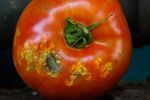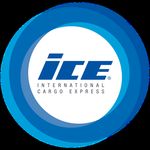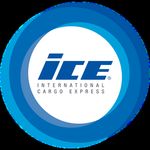Stink Bug Season 2022/23 - Fact Sheet
←
→
Page content transcription
If your browser does not render page correctly, please read the page content below
WHAT IS A BMSB?
The Brown Marmorated Stink Bug (BMSB) is an
agricultural pest able to feed on around 300
different plant species and severely damage fruit
and vegetable crops.
In order to prevent its entrance into Australia, the
Department of Agriculture, Fisheries and Forestry
has established strict measures for eligible cargo
entering Australia during the season.
Failure to comply can result in having your cargo
reexported or even destroyed.
WHAT YOU NEED TO KNOW
For the 2022-23 BMSB risk season, mandatory
measures will apply to targeted goods manufactured
and shipped from target risk countries, that are
shipped between 1 September 2022 until 30 April
2023 (inclusive), and to vessels that berth, load, or
tranship from target risk countries within the same
period.
This means if your vessel leaves on August 31st, stink
bug measures will not apply, however, should your
vessel be delayed, stink bug requirements may be
enforced. Due to industry delays, ICE recommends
you consider fumigating your cargo from August.
1WHO IS AFFECTED
Certain goods manufactured in, or shipped from target risk countries (below) as ocean
freight.
Vessels that berth at, load or tranship from target risk countries during the season.
China and the United Kingdom have been identified as emerging risk countries for the
2022-23 BMSB risk season, as such:
China - random inspections will apply for goods shipped between 1 September to 31
December (inclusive).
United Kingdom - random inspections will apply to goods shipped between 1 December -
30 April (inclusive).
In addition to the target risk goods, chapters 39, 94 and 95 will be subject to random
inspections for China & the UK.
Albania Germany North Macedonia
TARGET RISK Andorra Greece Poland
Armenia Hungary Portugal
COUNTRIES Austria Italy Romania
Azerbaijan Russia
2022/23 Belgium
Japan*
Kazakhstan Serbia
Bosnia and Herzegovina Kosovo Slovakia
*Heightened vessel Bulgaria Slovenia
Liechtenstein
surveillance will be the Canada Spain
Luxembourg
only measure applied. Croatia Switzerland
Moldova
Czechia Montenegro Turkey
No new countries were
France Netherlands Ukraine
added this season.
Georgia USA
GOODS AFFECTED
All target high-risk and target risk goods (page 4) from target risk countries will be subject
to increased onshore intervention through random inspection.
Target high risk goods will require mandatory treatment.
Target risk goods will not require mandatory treatment, but will be subject to increased
onshore intervention through random inspection.
For all other goods not categorised as high risk and target risk goods, BMSB seasonal measures
do not apply. However, these goods may still be subject to these measures if they are part of a
container/consignment that does contain any high/risk goods.Your good may be exempt from the seasonal measures if you ship:
Certain goods packed and sealed before 1 September 2022, with a sealing declaration as
evidence.
Certain goods stored or transported to non-target risk countries before 1 September 2022.
New, Unused and not Field Tested (NUFT) goods, manufactured on/after 1 December 2022.
TREATMENT INFORMATION
MANDATORY TREATMENT 120 HOUR WINDOW
The Department continues to have three The 120-hour policy is in place for goods
approved BMSB cargo treatments: shipped from 1 September to 30
November inclusive. Containers must be
1. Sulfuryl fluoride fumigation sealed within 120 hours of treatment.
2. Methyl bromide fumigation (most common)
3. Heat treatment Break bulk, Flat rack and open top
containers must be loaded on board
You can view these treatment options here. All within 120 hours of treatment and goods
cargo treatments must be completed by an transhipping through a risk country must
approved treatment provider and come with a have departed within 120 hours.
BMSB Treatment Certificate.
With the amendment, if break bulk, flat
rack or open top containers are delayed
MEASURES REQUIRED
and shipped outside the 120-hour window
Breakbulk, flatrack and open top containers (but less than 48 hours over), and
must be treated offshore. evidence can be provided, the in-transit
policy may be enacted (upon approval
Six-sided sealed containers can be treated from the Department).
onshore or offshore. Offshore is
recommended to remove the risk of *The 120 hours does not apply to goods
overpacked and tightly packaged items treated after 1 December.
needing to be unpacked for treatment on
arrival, causing more costs and delays).
SAFEGUARDING
ARRANGEMENTS SCHEME
Importers able to demonstrate that their
manufacturing supply chain can effectively
prevent their goods from being contaminated
with BMSB may be exempt from mandatory
treatment on arrival. Details on eligibility and
application here.TARGET HIGH-RISK GOODS
• 44 - Wood and articles of wood; wood • 82 - Tools, implements, cutlery, spoons and
charcoal forks, of base metal; parts thereof of base
• 45 - Cork and articles of cork metal
• 57 - Carpets and other textile floor coverings • 83 - Miscellaneous articles of base metals
• 68 - Articles of stone, plaster, cement, • 84 - Nuclear reactors, boilers, machinery and
asbestos, mica or similar materials mechanical appliances; parts thereof
• 69 - Ceramic products – including sub • 85 - Electrical machinery and equipment
chapters I and II and parts thereof; sound recorders and
• 70 – Glass and glass ware reproducers, television image and sound
• 72 - Iron and steel - including sub chapters I, recorders and reproducers, and parts and
II, III, IV accessories of such articles
• 73 - Articles of iron or steel • 86 - Railway or tramway locomotives,
• 74 - Copper and articles thereof rollingstock and parts thereof; railway or
• 75 - Nickel and articles thereof tramway track fixtures and fittings and parts
• 76 - Aluminium and articles thereof thereof; mechanical (including electro-
• 78 - Lead and articles thereof mechanical) traffic signalling equipment of all
• 79 - Zinc and articles thereof kinds
• 80 - Tin and articles thereof • 87 - Vehicles other than railway or tramway
• 81 - Other base metals; cermets; articles rolling-stock, and parts and accessories
thereof thereof
• 82 - Tools, implements, cutlery, spoons and • 88 - Aircraft, spacecraft, and parts thereof
forks, of base metal; parts thereof of base • 89 - Ships, boats and floating structures
metal
TARGET RISK GOODS
• 27 - Mineral fuels, mineral oils and products of • 49 - Printed books, newspapers, pictures and
their distillation; bituminous substances; other products of the printing industry;
mineral waxes manuscripts, typescripts and plans
• 28 - Inorganic chemicals; organic or inorganic • 56 - Wadding, felt and nonwovens; special
compounds of precious metals, of rare-earth yarns; twine, cordage, ropes and cables and
metals, of radioactive elements or of isotopes - articles thereof
including sub chapters I, II, III, IV and V • 94 - chairs, medical, surgical furniture,
• 29 - Organic chemicals - including sub household and office furniture, mattresses and
chapters I, II, III, IV, V, VI, VII, VIII, IX, X, XII and XIII bedding and furnishings, lighting and
• 38 - Miscellaneous chemical products prefabricated building (applicable to China &
• 39 - Plastics and articles thereof – including UK only)
sub chapters I and II • 95 - toys, games, game consoles, parlour
• 40 - Rubber and articles thereof games, festive articles, sports and exercise
• 48 - Paper and paperboard; articles of paper equipment, fishing equipment and travelling
pulp, of paper or of paperboard circus and amusement equipment (applicable
to China & UK only)You can also read


























































